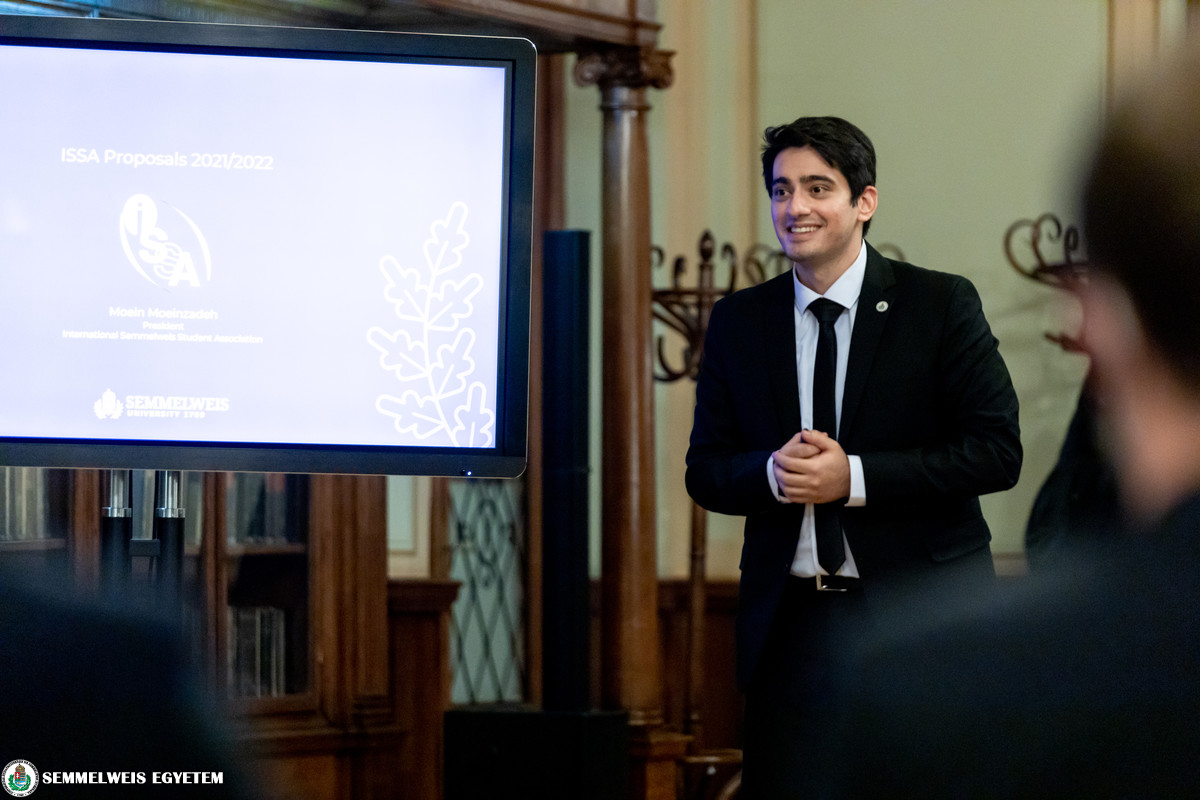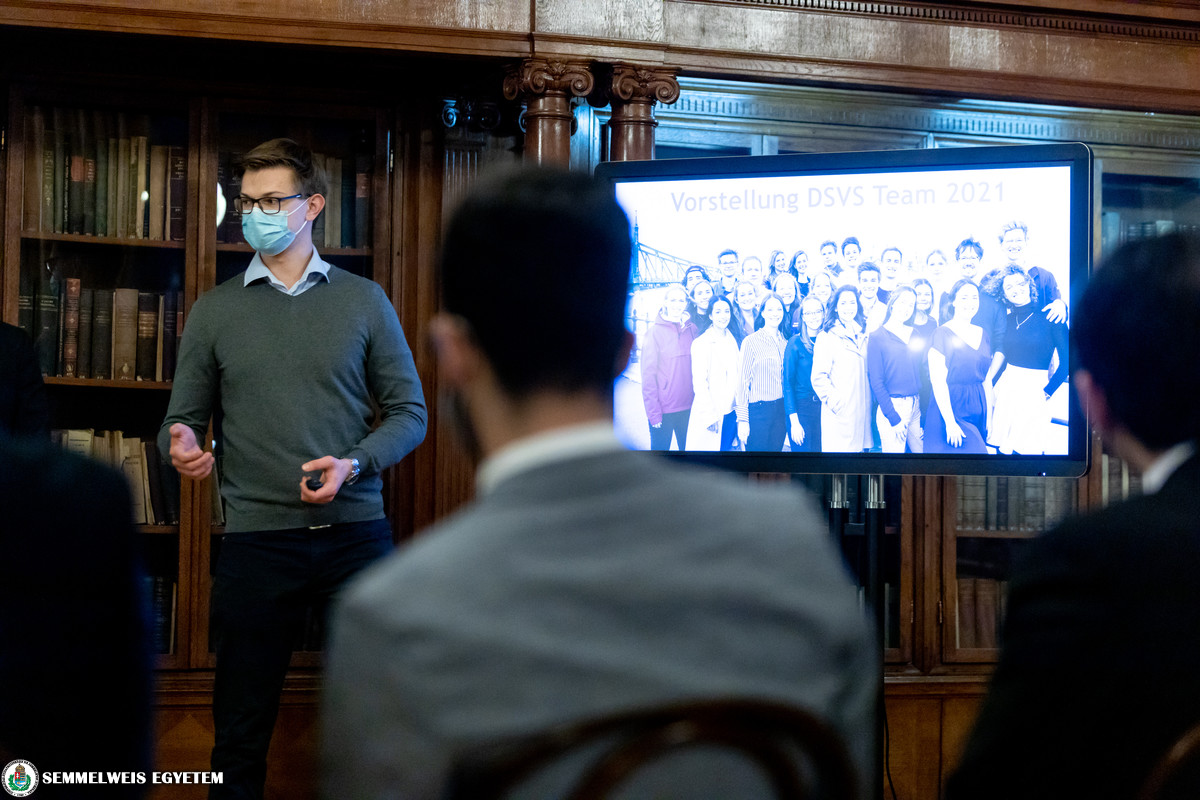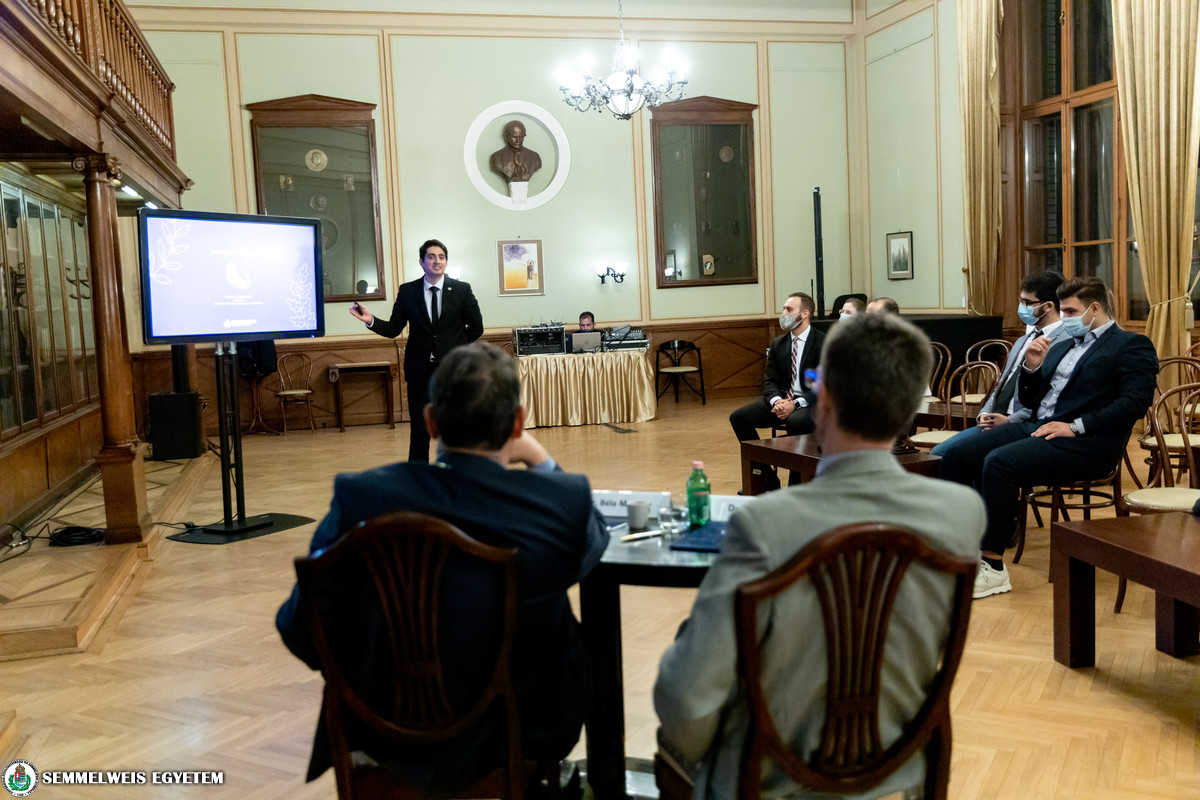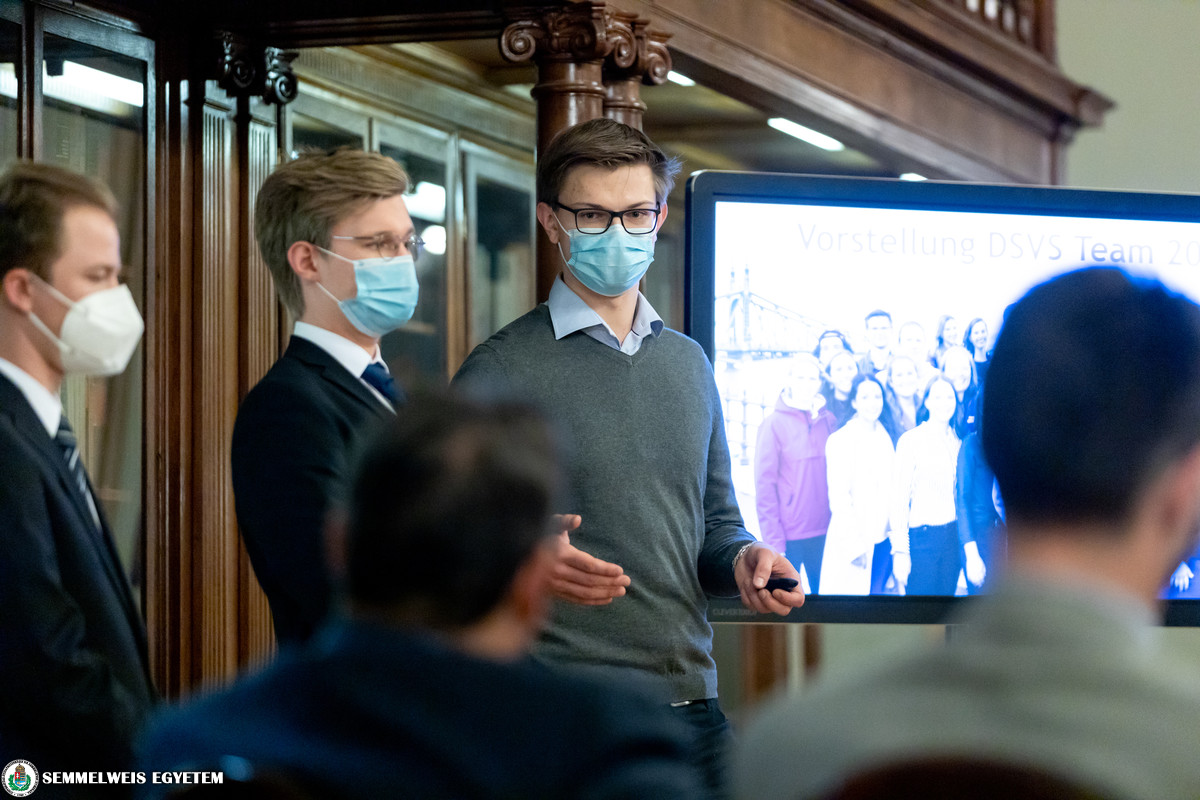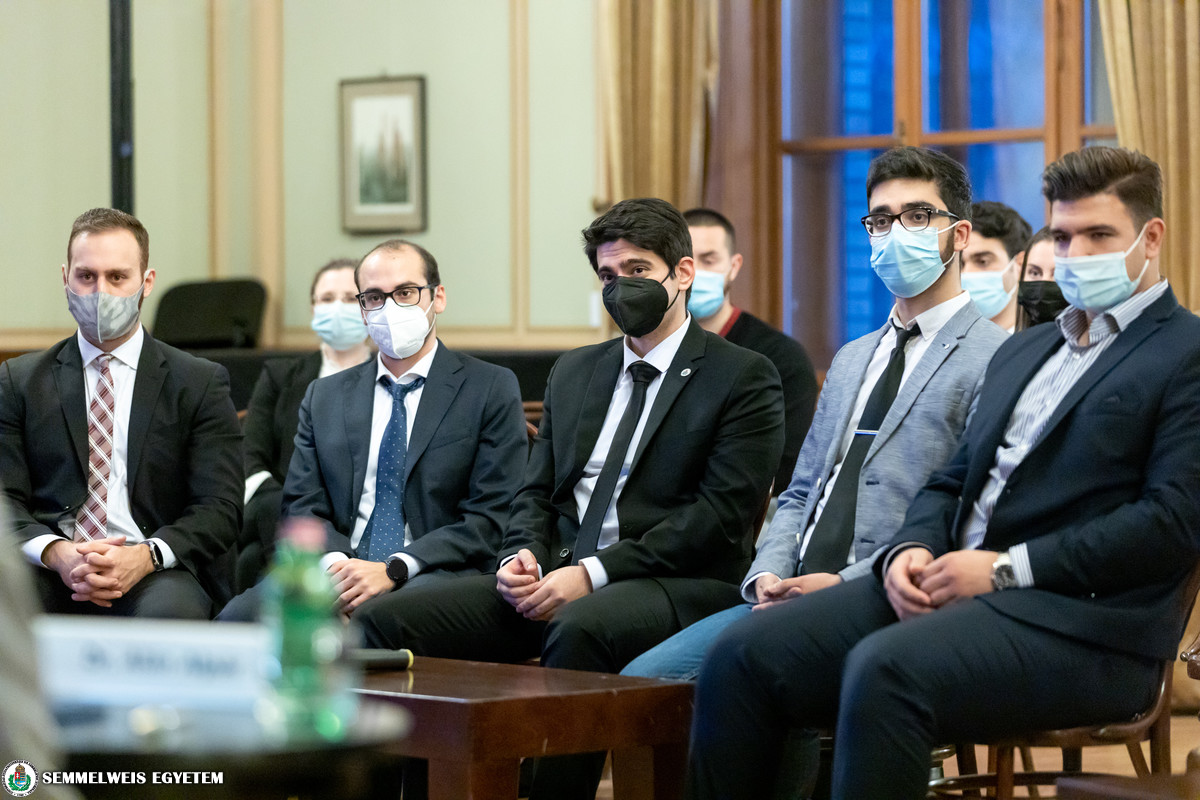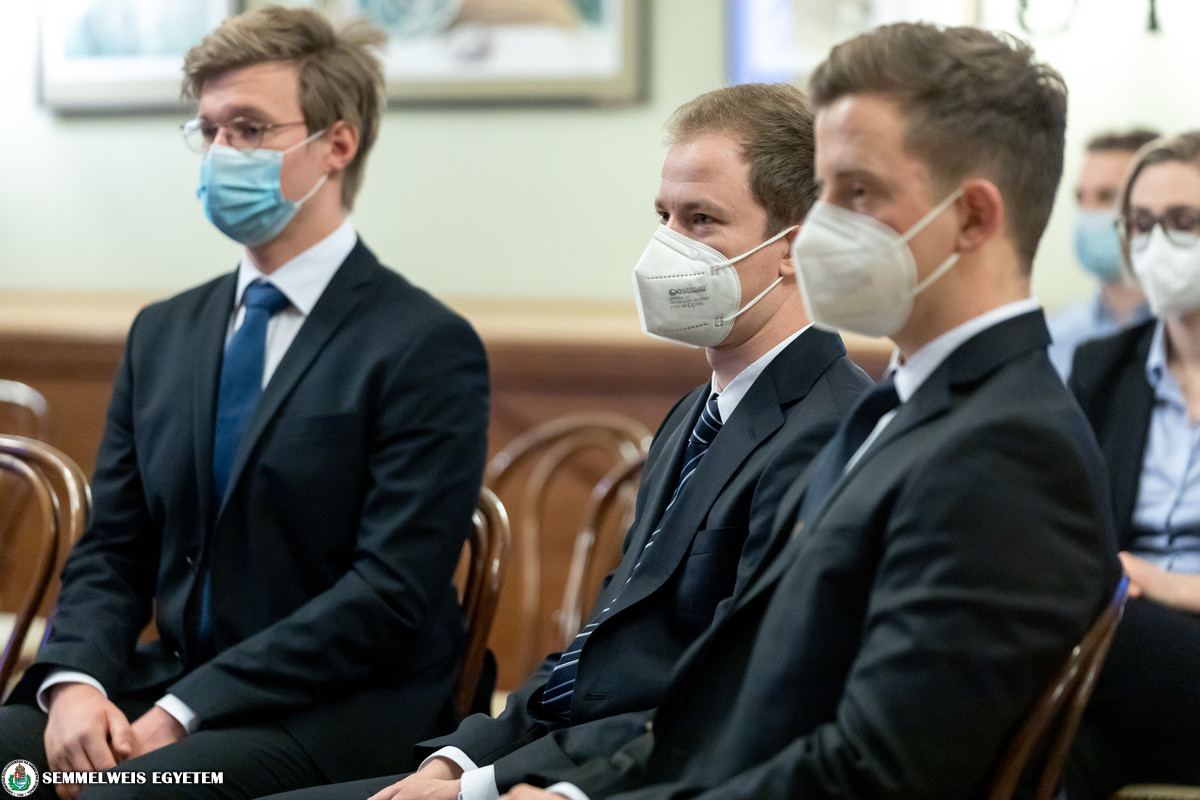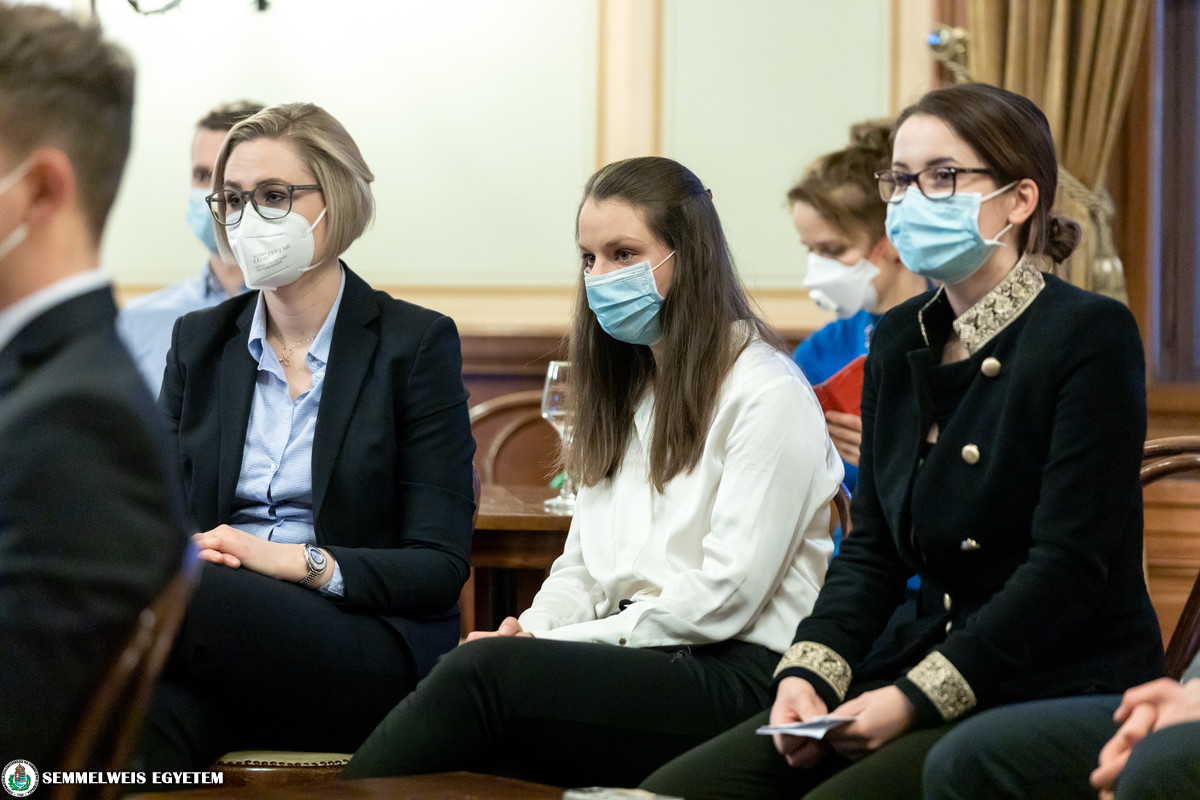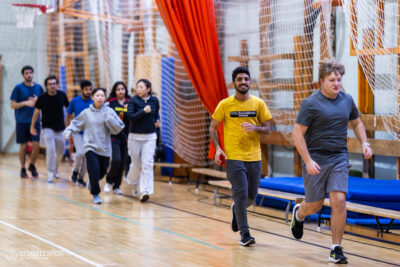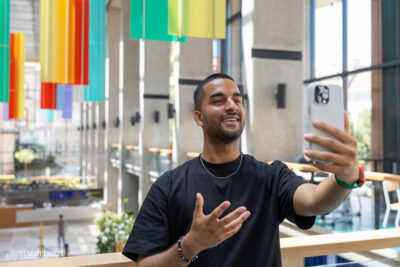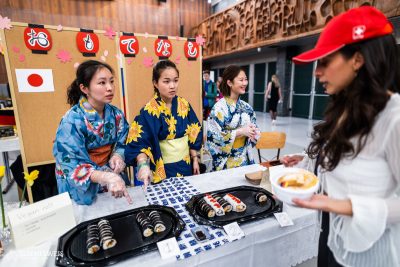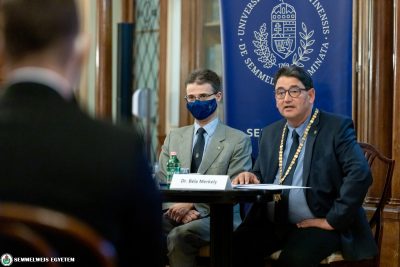 In his speech, the rector highlighted that currently, students from 70 countries around the world have chosen Semmelweis University as the location of their studies, to become doctors, pharmacists or dentists. Furthermore, the Faculty of Health Sciences offers nearly 20 different programs, including new fields like public health management or optometry, for applicants from all around the world, he added.
In his speech, the rector highlighted that currently, students from 70 countries around the world have chosen Semmelweis University as the location of their studies, to become doctors, pharmacists or dentists. Furthermore, the Faculty of Health Sciences offers nearly 20 different programs, including new fields like public health management or optometry, for applicants from all around the world, he added.
The rector recalled that next year Semmelweis University will celebrate the 40th anniversary of teaching international students, who make up over one-third of the total students’ community at the university. He acknowledged the pronounced role of international students’ communities like DSVS (Deutschsprachige Studentenvertretung Semmelweis) and ISSA (International Semmelweis Student Association) in the life of the university. “During these 40 years we have learned a lot from you, international students, about culture, perseverance, devotion and ambition. We acknowledge the effort and risk you have taken when leaving your home country and join a hitherto unknown country and community. This activity has born a new body in Semmelweis University, a body we are happy to involve in our everyday life,” he emphasized.
After the rector’s speech, the representatives of students enrolled in the international programs held their semester-evaluating presentations and put forward their proposals for the future. On behalf of DSVS, the key spokesman was Michael Hubatka, a third-year medical student from Switzerland, and on the part of the English Language Program, the presentation was held by Moein Moeinzadeh, a fifth-year medical student from Iran, the president of ISSA.
The representatives of both international student programs expressed their gratitude to the rector for their early access to vaccination, and for the fact that the pandemic caused no delay in their studies. Among the further major topics of the two talks were the outstanding international student participation in organizing vaccination and COVID-related activities; the development of a University Club System on the example of British universities; the White Coat Ceremony with over 300 participants from all the faculties and programs of the university; academic training events like ”Sectio Chirurgica,” a livestream broadcast from the operation room in ”Klinischen Anatomie Tübingen,” and social events such as a movie evening in the lecture hall of the Dental Clinic.
In regard to future proposals, the students placed great emphasis on their preparations and plans for next year’s celebrations on the occasion of of the 40th anniversary of launching international students’ programs at Semmelweis University.
Under the rectorship of Dr. Béla Merkely, major importance is attached to the fact that students of the German and English language programs, as well as Hungarian students, are brought together in order to establish fruitful relationships and create an “international Semmelweis spirit”. According to his expectations, this will later provide an ideal breeding ground for joint research projects that boost the academic life of health science.
Veronika Szelid
Photo: Attila Kovács – Semmelweis University

